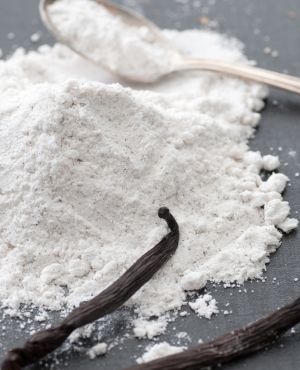
Not all sugar is created equal, and new research has revealed just how important it is to know the difference.
As far as the sugar we eat goes, the most common types are glucose, sucrose and fructose. Glucose, also known as dextrose, is the most well-known and is derived from plants, usually corn. Fructose is often referred to as fruit sugar as it naturally occurs in fruit, often in relatively high concentrations. Sucrose is what makes up table sugar and is produced by combining glucose and fructose molecules in equal quantities.
Due to its relationship to fruit, fructose is often perceived by people to be a “healthier” form of sugar than the others. This, however, could not be further from the truth. Numerous studies have found that fructose is substantially more toxic to organisms than plain glucose and can lead to serious health consequences in the long term.
This reason this is of such importance is the way the food and beverage industry have moved away from using sugar in food production, instead moving towards the more financially viable High Fructose Corn Syrup (HFCS). This is especially true in processed foods and sweetened beverages. Of particular concern is the fact that these products have been revealed to contain higher levels of fructose than previously reported, claimed the Guardian in June 2014.
Read: The fructose controversy
Like sucrose, HFCS contains both glucose and fructose, however, unlike sucrose it does not contain them in equal proportions. Instead of one disaccharide (two sugar) compound, it contains glucose and fructose as two completely separate molecules, or monosaccharides.
A 2013 study on mice compared the health outcomes of a group of mice fed a diet high on table sugar to a group whose diet replaced sugar with HFCS. The mice fed HCFS were 1.87 times more likely to die and produced 26.4% less offspring than the sugar group, highlighting the toxicity of sweetening agents high in fructose, reports Science Daily. These findings have been supported in a new study by the University of Utah.
In South Africa, HCFS has yet to seriously take off, largely due to the strength of the sugar industry in the country and the need for other crops, like wheat, to ensure food security for the millions of poor people in the country. However, certain imported foods do include the concoction. There is also a reasonable possibility of companies turning to it in the future as it becomes more economically appealing in the region.
The problem appears to lie in the fact that the human body prefers to metabolise glucose for energy whereas fructose is more readily taken up by the liver and turned into fat. Some scientists, such as Dr. Robert Lustig from the University of California at San Francisco, have gone as far as to claim that fructose is just as damaging to the liver as alcohol. This is believed to be at least part of the reason behind the explosion of obesity in the US after the widespread adoption of HFCS in the 60’s and 70’s.
Writing in the Guardian, Lustig also goes on to claim that metabolising fructose causes 7 times as much cell damage and 100 times more disease-causing free radicals.
Read more:
Fructose affects the sexes differently
IBS linked to fat, fructose
Fat forms faster with fructose




 Publications
Publications
 Partners
Partners










